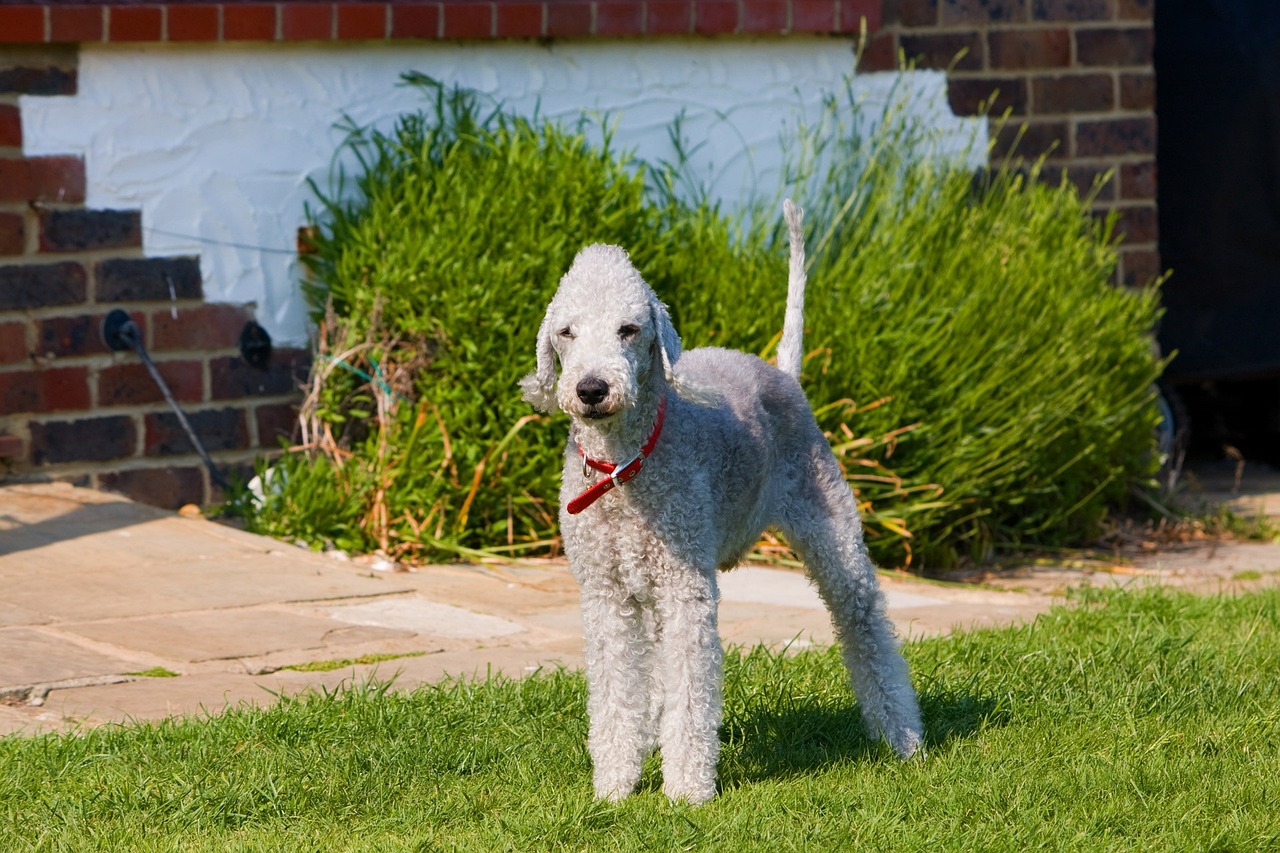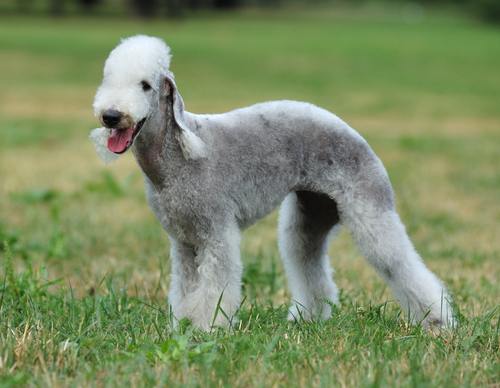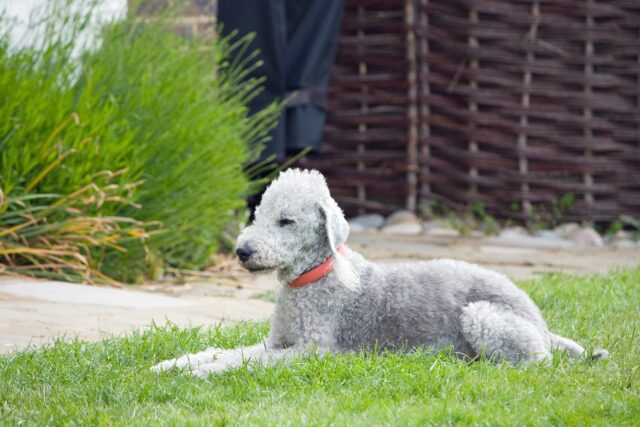Bedlington Terrier
No products found which match your selection.
Shelter Dog Meal Donation Count:
No products found which match your selection.
The Bedlington Terrier, known for its distinctive lamb-like appearance and curly coat, is a versatile and agile breed originally bred for hunting. They are affectionate and loyal companions, suitable for various family settings.
The Bedlington Terrier was originally bred in the mining town of Bedlington, Northumberland in Northeast England. They were used for hunting vermin and small game and were valued for their speed and agility.

Developed in the early 19th century, the Bedlington Terrier is one of the oldest known terrier breeds. They were initially known as Rothbury or Rodbery Terriers and later named after the mining town of Bedlington.




Generally healthy, but can be prone to copper storage disease, eye problems, and thyroid issues. Regular health screenings and check-ups are recommended.
Their wool-like coat requires regular grooming to maintain its condition and prevent matting. This includes professional grooming every few months. Regular brushing and bathing are necessary to keep their coat clean and tidy.
Requires daily exercise, such as walks, playtime, and opportunities to run in a safe area. Their energetic nature makes them well-suited for dog sports like agility.
Training should start early and be consistent. They are intelligent and learn quickly. Positive, reward-based training methods work best for this breed.
A well-balanced diet is suitable for their size, age, and activity level. Care should be taken to monitor their food intake and weight, as they can be prone to obesity.
Caring for a Bedlington Terrier requires understanding their need for regular grooming and exercise. They thrive in environments where they can be part of the family and engage in various activities. With the right care and attention, Bedlington Terriers make loving, playful, and loyal companions.
The Bedlington Terrier, known for its distinctive wool-like coat and lamb-like appearance, is generally a healthy breed. However, like all dog breeds, Bedlington Terriers are predisposed to certain health conditions. Awareness of these conditions and conducting recommended tests can help in maintaining their health.
Regular veterinary check-ups are essential to catch any health issues early, and prompt attention to any changes in your dog's behavior or appearance is key. With proper care and attention to health, Bedlington Terriers can lead happy, healthy lives as beloved members of their families.
The iHeartDogs Free Rx Discount Card Program is a pet prescription discount card that can help you save money on your furry friend’s medications. The card is free to sign up for, and you can use it at participating pharmacies nationwide. To use the free program, simply show the card to your pharmacist when you pick up your pet’s prescription. The pharmacist will then scan the card, and you will receive a discount on the price of the medication.LEARN MORE
Caring for a Bedlington Terrier involves various annual expenses, which can vary depending on factors such as your location, the individual dog’s needs, and the level of care you choose to provide. Here’s a general breakdown of the annual costs for a Bedlington Terrier:
Total Estimated Annual Cost:
$3900 - $8700
It's important to note that these figures are estimates and can vary. Also, the first year of owning a dog can be more expensive due to one-time costs like spaying/neutering, initial vaccinations, and training. Regular budgeting for your dog's needs and an emergency fund for unforeseen costs are essential for responsible pet ownership.